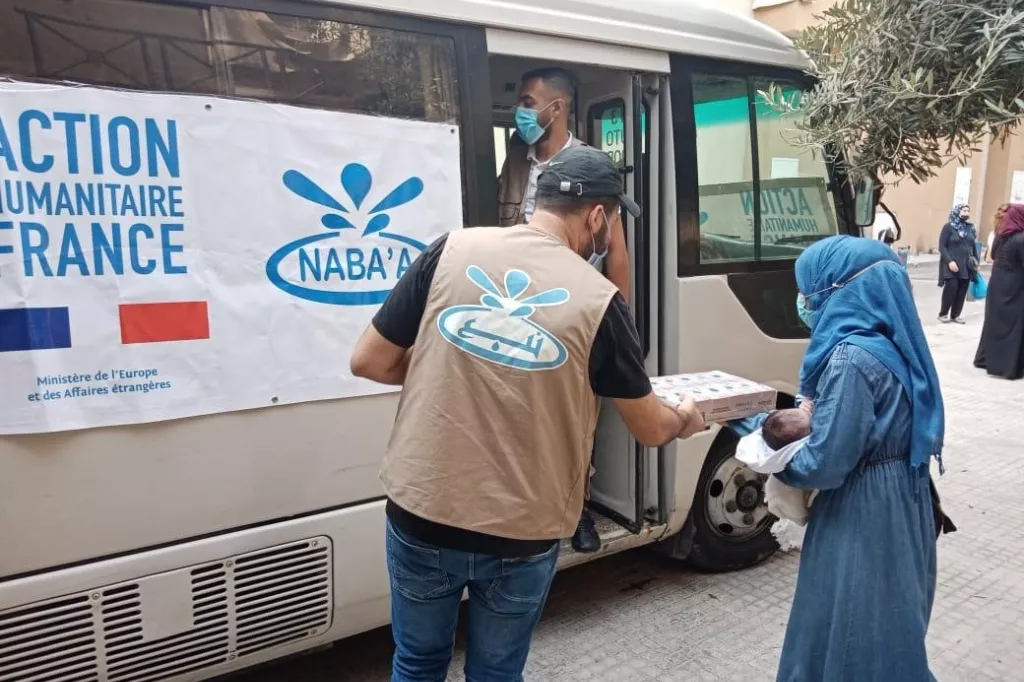The need for vibrant civil society in Lebanon

The main immediate challenges in the wake of the explosion are the dire humanitarian situation and a food crisis that will make it even more catastrophic. Prices for food and other goods have doubled over the last year. The exchange rate for the local currency is the lowest in years.
The long-term impact is devastating. The explosion, which is a result of government incompetence, exposed an already shaky political system which divides and connects individuals to political leaders based on sectarian identity. Besides, the explosion threatens around 1.5 million Syrian and Palestinian refugees who live in extremely fragile conditions under the poverty live. Lebanon is one of the main hosts for refugees in the region.
ForumCiv supports six local partner organizations on human rights and development issues in the Palestinian refugee camps and throughout Lebanon. After the explosion, ForumCiv organized a special workshop titled “Lebanon Catastrophe: Challenges and Ways Forward” to address the current situation and assess the impact of the crisis on our partners’ long term work. All ForumCiv’s local partners engage in humanitarian response to meet the urgent needs of the people affected by the explosion. However, they all empathised that there is a great need for civil society to take a leading role in changing the conditions in Lebanon.
Corruption and lack of accountability are the most harmful diseases to democracy.
One of the workshop participants was the organization Developmental Action without Borders/Nabaa’, which runs a three-year project to support the resilience of young people and children in the refugee camps in Lebanon. Yasser Dawod, Executive Director of Nabaa’, states that a lot of work needs to be done by civil society to mobilize communities to support the nation’s claims for reform and accountability. “People are suffering because of a lack of accountability and good governance, especially refugees. Let us not forget that the situation for refugees in Lebanon was already grim before the explosion”, Yasser adds.
Another of our partners, Women Program Association (WPA), runs a two-year project to increase women’s democratic influence in two refugee camps in Lebanon. Tahani Sharif, project manager at WPA, expects the crisis to have devastating consequences on women in particular. Especially when local authorities as well as civil society organizations now shift their focus towards meeting humanitarian needs. “Emergencies often exacerbate discrimination against women and increase existing inequalities based on gender. It is therefore of utmost significance to focus on women’s’ issues during and post any crisis”, says Tahani.
ForumCiv’s local partner organizations reported several challenges caused by the economic crisis since October 2019. In light of the political instiabiltiy and the humaniterian situaiton, the challenges to development work are even more urgent. The Beirut explosion is a tough lesson for the whole world and not only for the Lebanese. Corruption and lack of accountability are the most harmful diseases to democracy. Rebuilding the shattered city of Beirut will need more than efforts to remove the rubble. There is a need for a new social contract which moves away from sectarianism towards a functional state that recognises the rights of its citizens. This cannot be done without supporting a vibrant civil society and enabling change agents to take an active role in shaping Lebanon’s future.
Other recent articles

The power of people powered Public-Private Partnerships
Public–Private Partnerships (PPPs) are often discussed in terms of roads, power plants, housing, and other large infrastructure projects. But as discussed on the People’s Partnership Podcast, PPPs are...

ForumCiv’s social media accounts labelled as “extremist materials” in Belarus
Important message to our Belarusian followers. Any interaction with our content can now lead to legal consequences in Belarus. Please read the information below and take the necessary precautions for...

ForumCiv enters new strategic partnership
ForumCiv is proud to announce a new three-year strategic partnership with Sida, totalling SEK 137 million.